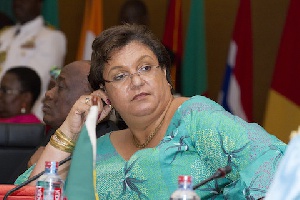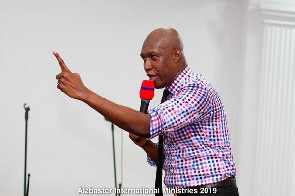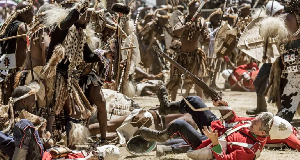With the unprecedented U.S.-Africa Leaders Summit over, Africans and Americans took a big first step toward a future of stronger economic ties.
But it will require hard work and dedicated leaders to keep people committed to Africa's advancement, says Ghana's Minister of Foreign Affairs Hanna Tetteh.
The summit was part of an Obama administration effort to encourage and strengthen the country's business relationship with some of the world's fastest-growing economies.
Africa's expanding middle class, energy needs, and untapped resources make it the next frontier for international investment, a prime opportunity for business partnerships that will both improve stability on the continent and foster jobs growth at home, U.S. officials said over the course of the summit.
USA TODAY sat down with Tetteh before she flew home to Ghana to get her perspective on the conference's success, and what needs to be done to continue the momentum it generated. Here are her five takeaways.
Africa's energy sector offers biggest opportunity
An event Monday focused entirely on Africa's energy needs and during the summit General Electric announced a $2 billion commitment toward infrastructure, skills training, and supply-chain development on the continent. More than two-thirds of sub-Saharan Africa lacks access to electricity. Tetteh reiterated the vast potential for business to serve this sector.
"Energy is really the number one game changer in terms of investment that Africa requires in order for us to be part of a bigger, more competitive, more integrated global market," Tetteh says. "One of the challenges we have is that we don't have sufficient energy to be able to power all the other businesses and services that are dependent on it to be able to move."
Agriculture and telecommunications are ripe for investments
Beyond energy, U.S. companies should look to Africa's agricultural and telecommunications needs as ideal points of entry, Tetteh says.
"Africa is the largest mobile market in the world," she says. "We've leapfrogged technology. We didn't have landlines. But the moment mobile telephony came into play it then made telephone access available to millions and millions of Africans."
Plus Africa has a large amount of untapped, uncultivated land that can be used for crops.
"With the right kind of support and investment in that sector we can help to feed what is a very quickly growing world," Tetteh says.
Talk up success stories
Business success on the continent will give others confidence to invest in Africa, Tetteh says.
"This is not ground zero," she says. "U.S. businesses that have already invested in Africa should be more encouraged to explain what it is they're doing. How they have been able to deal with whatever challenges they had coming their way, knowing that ours is not an environment where there's so much infrastructure in place already."
Africa's diversity isn't deeply appreciated
The summit highlighted the USA's willingness to engage with Africa, but Tetteh says many Americans still have trouble understanding and grasping Africa's diversity and size.
"There are a lot of people here who think of Africa as a country and not a continent," she says. "We are 54 countries and so there's a lot of difference in Africa. There are different languages, there are different ethnic groups, there are different customs, there are different cultures."
And while some areas still suffer from poverty, deprivation, and extremist ideologies, "you also have places where people are aspirational, the economies have been growing," she says.
"Once you begin to appreciate the diversity...that there are places that are growing that are indeed part of the Africa rising story, and more importantly that those places have opportunities not only for Africans but for the world, that is when not only the narrative will change, the dynamic will change, but much more importantly we will all be the better off for it."
Next: 'A lot of hard work'
Once the excitement of the conference fades and people return home, Tetteh says, "what we need to do to follow through is a lot of hard work."
"We're at the point where we need some dedicated people to get this off the ground. With the right spirit, with the right mindset and with the willingness to engage, which I think is what this summit epitomizes, yes, we should be able to make a difference."
General News of Sunday, 10 August 2014
Source: USA Today













